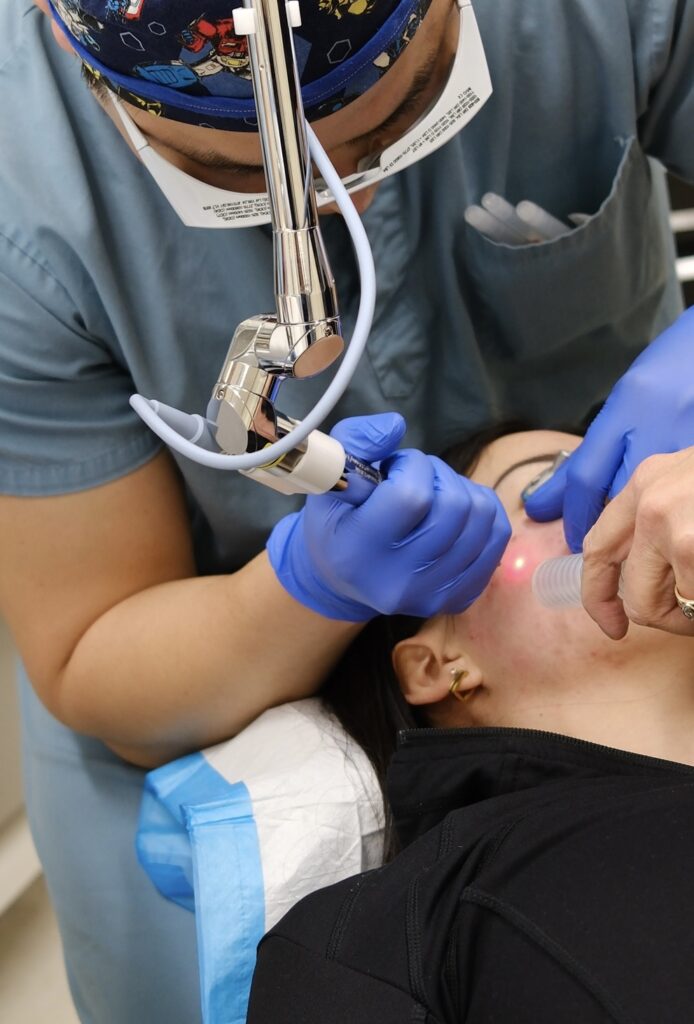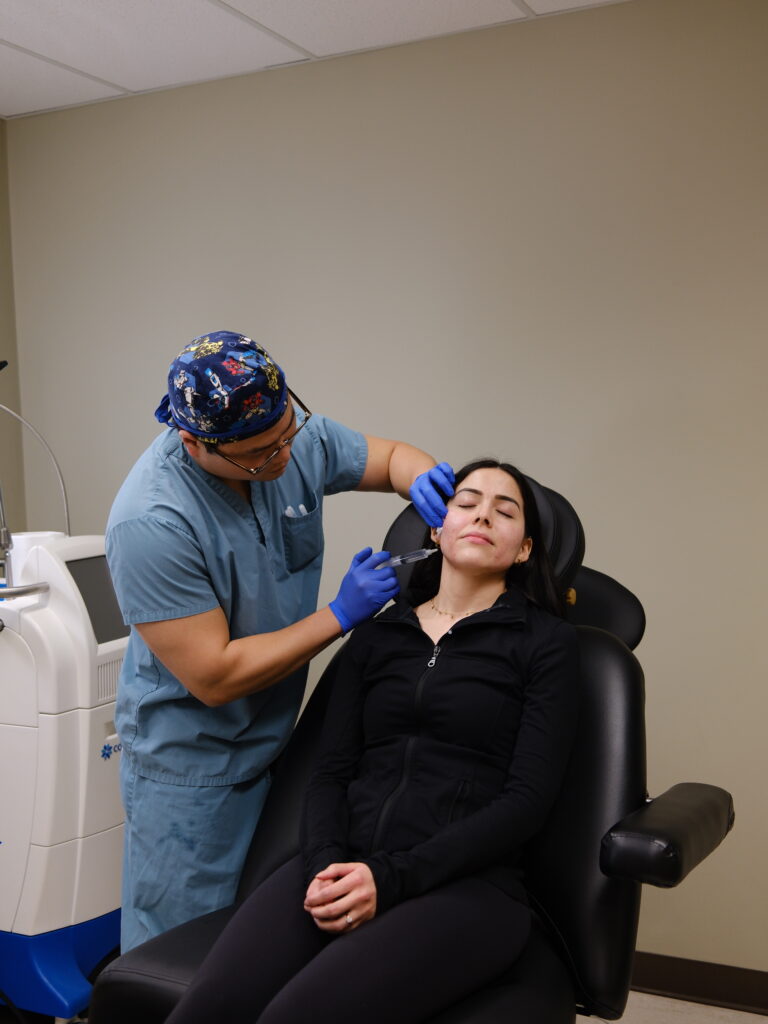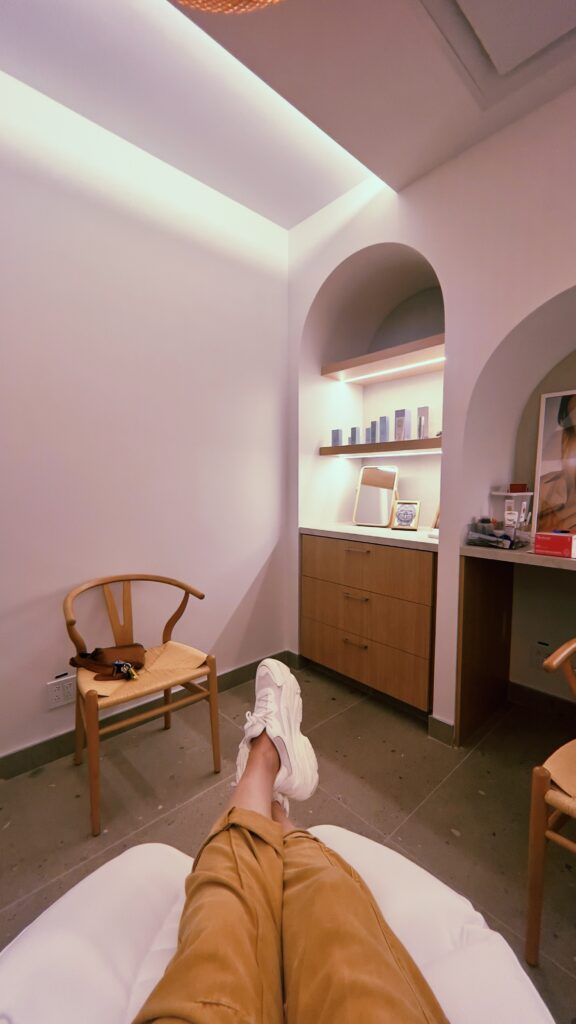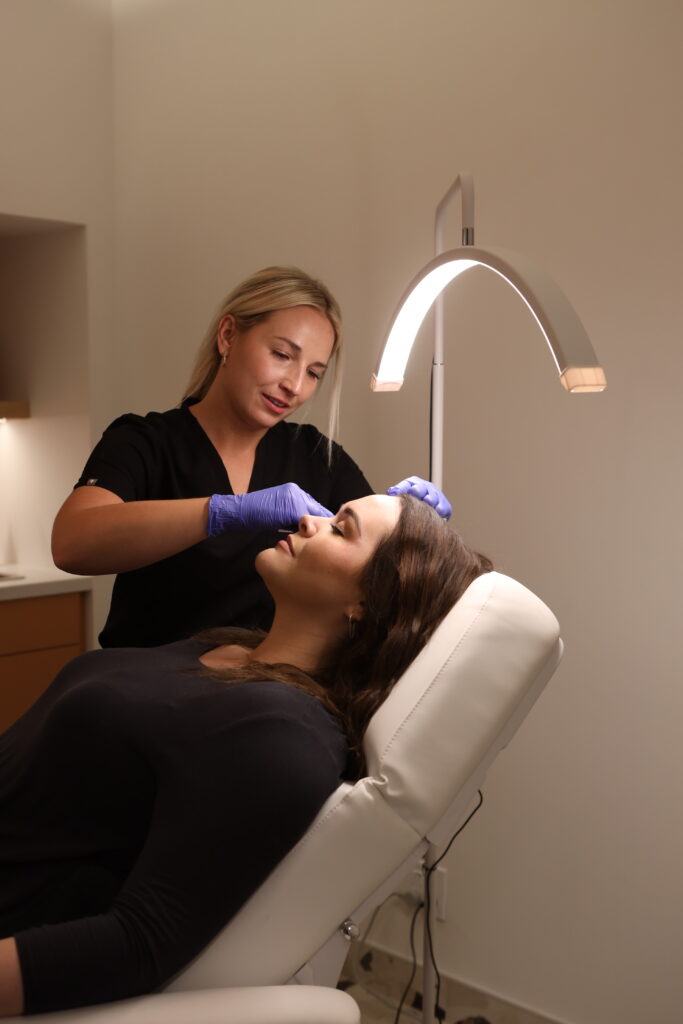Erbium Ablative Laser Resurfacing

What is an Erbium Ablative Laser Resurfacing treatment?
Benefits
This treatment is ideal for individuals looking to improve fine lines and wrinkles, uneven skin texture, sun damage, and precancerous spots. It effectively targets red and brown pigmentation concerns, helping to create a more even complexion. Additionally, it can reduce the appearance of acne scars or surgical scars, smoothing the skin’s surface for a refined look. For those struggling with skin laxity or overall dullness, this treatment stimulates collagen production to restore firmness and radiance, leaving the skin looking healthier and more rejuvenated.
The cost of an ablative laser treatment will depend on the specific facial subunits involved (e.g. eyes and mouth versus full face) as well as fully ablative TRL versus profractional erbium treatments.
Please contact us for additional information.




What we offer at True
Frequently Asked Questions
Am I a good candidate for Ablative Erbium Laser Treatment?
You may not be a suitable candidate for Sciton Erbium Laser if you have:
Active skin infections such as cold sores, acne breakouts, or open wounds in the treatment area.
Recent sun exposure or tanning, as tanned or sunburned skin increases the risk of complications.
Pregnancy or breastfeeding, as hormonal changes can affect skin sensitivity and healing.
Certain skin conditions like eczema, psoriasis, rosacea, or a history of keloid scarring, which may require special precautions.
Recent use of Accutane (Isotretinoin) within the past 6 months, as it affects skin healing.
History of poor wound healing or hypertrophic scars, which may increase the risk of complications.
Recent chemical peels or laser treatments, as your skin needs time to recover before another resurfacing procedure.
Uncontrolled medical conditions, including certain autoimmune diseases, diabetes, or immune disorders that may impact healing.
Use of photosensitizing medications, such as some antibiotics or other prescriptions that increase skin sensitivity.
How do I prepare for my treatment?
Discontinue topical Retinol & Exfoliants – Stop using retinol, tretinoin, AHAs, BHAs, and any exfoliating products at least 2 weeks before your treatment. Oral retinol must be discontinued 6 months prior to treatment. Avoid waxing, lasers and sun exposure in the days leading up to your treatment. These can make your skin more sensitive and prolong healing.
Avoid Blood Thinners – If possible, avoid aspirin, ibuprofen (Advil, Motrin), fish oil, and vitamin E as they can increase the risk of bruising. (Always check with your doctor before stopping any medication.)
No Active Breakouts or Skin Irritations – If you develop an active cold sore, rash, or skin infection in the treatment area, notify your provider before your appointment.
Stay hydrated prior to your treatment and keep skin clean – Wash your face with a gentle cleanser and avoid heavy makeup, lotions, or skincare on the day of treatment.
After your initial consultation with Dr.Song, depending on your skin type you may be started on a prophylactic treatment of Hydroquinone.
What’s the process and how long will it last?
A multimodal analgesia or numbing process is incorporated to optimize your comfort during the procedure. First, a topical numbing agent is applied to your skin for 30-60 minutes. Afterwards, local anesthetic will be injected at specific points depending on the area treated to provide nerve blocks. Your skin will be cleaned in the treatment area and your eyes will be protected with safety shields. A laser handpiece will be positioned gently on the skin. When the laser energy is applied, you will hear a rapid succession of snapping sounds. The handpiece will be moved around to adjacent locations until the entire treatment area has been covered. The procedure normally takes 30 minutes.
Will it hurt?
Erbium laser therapy is widely regarded as a comfortable procedure, usually tolerated with the use of a topical numbing cream and/or a local anesthetic, depending on the depth of treatment.
How long is the recovery period?
Immediately following the procedure you may experience redness and a sensation resembling sunburn. Dr. Song will advise you on specific after-treatment care, which may include analgesics, antibiotics and application of an ointment to keep the skin moist. You will be provided a detailed post-treatment instruction manual outlining your provided prescriptions, skin aftercare, and overall recovery.
After treatment, expect redness, swelling, and a sunburn-like sensation for 24-48 hours. Keep skin hydrated with a gentle moisturizer, avoid touching or picking, and use cool compresses if needed (mild bruising can also occur). Around days 2-7, peeling begins—let it happen naturally (don’t pick) and stick to mild skincare with SPF 30+. Avoid makeup, exfoliants, and heat exposure. By days 7-14, new skin emerges but may still be pink and sensitive, so continue hydration and strict sun protection until fully healed. For best results, adhere to your treatment provider’s recommendations, maintain SPF daily and stay hydrated.
When will I see results?
In the immediate days following new skin formation, you will notice a difference in the contour and complexion of your skin. However, further skin tightening and rejuvenation occurs secondarily due to the collagen remodelling process, completing around 3-6 months following treatment.
How often should I get this treatment?
Visible results are generally obtained after one treatment. The ultimate number of treatments vary between patients depending on the individual’s skin density, aesthetic goals, and expected recovery. For those seeking periodic treatments for maintenance of skin result, a fully ablative treatment could be considered every few years, and sooner for profractional treatments.
Dr.Song will customize a plan based on your skin type, recovery tolerance, and long-term goals. Erbium laser treatments can also be combined with BBL, microneedling, and other skincare treatments to further enhance results.
What is the difference between a fully ablative Tunable Resurfacing Laser and a Profractional treatment?
A fully ablative laser resurfacing treatment will treat 100% or the entire surface of the desired area of treatment. As the entire surface of the skin is treated with an ablative laser treatment,
there will be more impactful results after one session, as well as a longer duration of recovery. For most indications, one treatment with the fully ablative laser is adequate for long lasting results. By comparison, a profractional laser will treat only a specific density or percentage of the desired area. By creating small micro-channels of injury in the skin, while leaving surrounding tissue untouched, there will be a faster course of recovery. For more sensitive skin circumstances, a few treatments with the profractional laser may be recommended.



